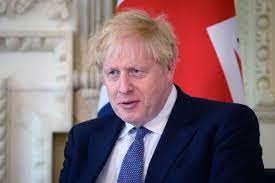UK’s consumer prices are sustaining a rising trend, hitting their highest rate in over a decade as a result of soaring energy costs and blockages in the supply chain.
Official figures on the country’s Consumer Price Index (CPI) released by the Office for National Statistics (ONS) Wednesday, a day before the Bank of England is set to next decide on interest rates, indicated that UK inflation rose by 5.1% in the year to November, up dramatically from October’s 4.2%.
The just published CPI figures showed how widespread the rise in inflation is, with surging prices spanning a broad spectrum of goods and services, including fuel, energy, cars, clothing and food items.
According to the ONS, the increase was more than the 4.8% consensus of economists’ forecasts and takes the level of inflation up to its highest level since September 2011.
Economic analysts predict that the latest price surge is likely to pile on the pressure on the Bank of England to raise interest rates on Thursday as inflation is running at more than double its target of 2%.
However, most economists think the monetary authorities will opt against raising the benchmark rate from the current record low of 0.1% because of the huge uncertainty surrounding the spread of the Omicron variant of the COVID-19 pandemic.
With infections widely anticipated to hit levels not seen before during the COVID-19 pandemic and new restrictions imposed, economic development experts are worried that raising the interest rate could further slowdown the already muted economic recovery in the U.K.
This is even as some analysts believe that an interest rate hike by the central bank which would increase many loans and mortgages no matter how modest, is the last thing households will want before the yuletide festivities.






